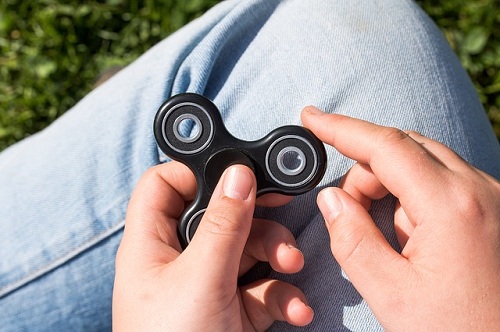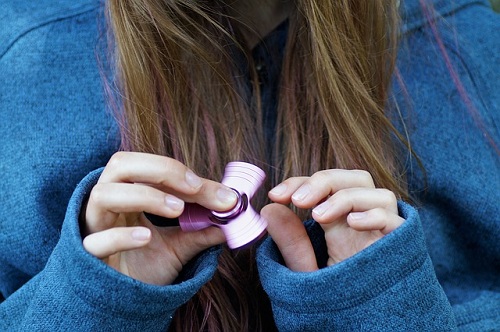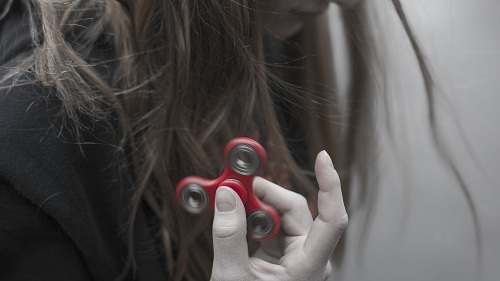Therapeutic Tool or Simply a Fad Toy: Fidget Spinner Facts

Smooth rocks held in the palm of the hand were once touted as a cure-all for anxiety. The newest toy world craze is a spinning, triangle shaped object called a “fidget spinner.” Children and adults around the world have purchased these gadgets, but are they a remedy for mental health challenges?
Manufacturer Claims
Manufacturers refer to fidget spinners as “worry rings,” similar to the “worry stones” that were sold and popular decades ago. The current day sellers assert the spinners alleviate various mental challenges, allowing the user to distract their hands while the brain focuses on more important tasks.
The fidget spinner’s action does seem to create a calming effect for the user. While fidget spinners may provide a sense of distraction, evidence doesn’t seem to support they are a mental health tool to replace the therapeutic benefits of counselling or teaching other life skills to surmount disabilities or learning challenges.

Merely a Distraction?
Many teachers complain fidget spinner devices are a distraction. Others in the mental health community agree they could be more disruptive than helpful. It’s been proposed that the fascination people experience is attached to a subconscious calming sensation. Meanwhile, some educators claim that the spinners merely prevent young people from learning and working through through their personal challenges.
Doctors are still unsure about the relative value of spinners for reducing anxiety. However, it’s a proven fact that counselling provides lifelong tools for individuals to manage anxiety without gadgets. Once the truth about fidget spinners is revealed, the newest fad in toys may be over as fast as it started.

Sure, the yo-yo still exists, but no one considers it a cure-all for mental health issues. For more information about how to truly address stress and anxiety issues, contact Depression and Relationship Counselling Services at (519) 253-1519.
